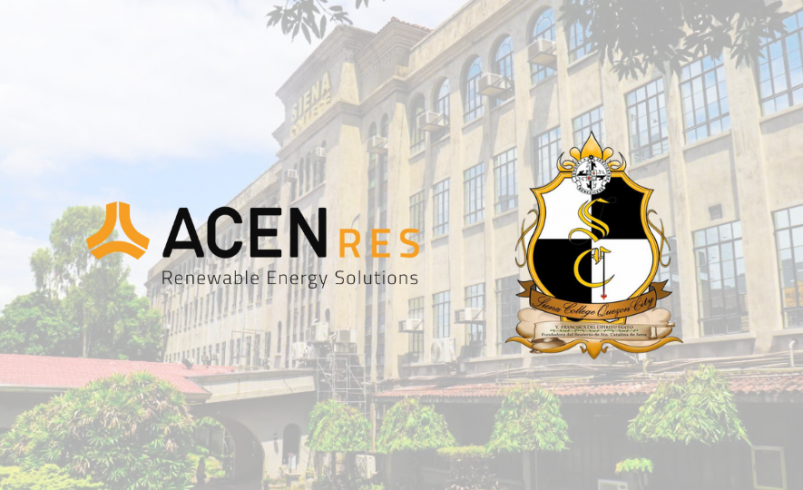Siena College campuses now fully powered by ACEN RES
- October 24, 2025
- 0

Siena College’s campuses in Quezon City and Taytay are now running entirely on renewable energy through a partnership with ACEN RES, the retail electricity arm of the Ayala Group’s energy platform, ACEN.
The initiative, announced on October 24, marks the institution’s full transition to clean power, reflecting its commitment to environmental stewardship and the principles of Laudato Si’, Pope Francis’ encyclical on caring for the planet and its people.
Guided by the Congregation of the Dominican Sisters of St. Catherine of Siena, the college network said the shift to renewables ahead of the new academic year demonstrates its drive to align education with sustainable practices.
To mark the transition, ACEN RES awarded Siena College the “Powered by Renewable Energy” badge—a distinction given to organizations that source their electricity from ACEN’s renewable portfolio. The badge will be displayed across both campuses as a symbol of the school’s commitment to sustainability.
“More and more institutions, especially in the education sector, are realizing the immense advantages of transitioning to renewable energy, not just for the planet but for their long-term operational sustainability,” said Tony Valdez, ACEN Senior Vice President for Market Transformation. “We are honored that Siena Colleges have placed their trust in ACEN RES as their renewable energy partner. ACEN RES lauds Siena Colleges for making the right choice, setting a powerful example for other academic institutions nationwide.”
“This shift to renewable energy allows us to significantly reduce our environmental footprint. Beyond our ecological responsibility, this partnership also optimizes our energy costs, enabling more efficient operations so we can continue to provide high-quality education that remains within the reach of many students,” Sr. Maria Celia Varon, O.P., President of Siena College of Quezon City, said.
Sr. Rosalea Busilac, O.P., President of Siena College of Taytay, added: “Our commitment to the youth extends beyond the classroom to ensuring a healthier planet for their future. By embracing renewable energy, we are not only embodying our values but also keeping our operations more efficient. This efficiency allows us to channel more resources directly into enhancing the learning experience and expanding access to education, reinforcing our mission to serve.”
According to ACEN RES, the partnership enables Siena’s two campuses to collectively avoid around 290 tons of carbon emissions each month.
This year, ACEN RES has expanded its partnerships with educational institutions as part of its push into the retail electricity market. In February, ACEN RES inked its first Retail Aggregation Program (RAP) deal with Philippine Cultural College (PCC), covering five facilities across its three campuses. Under RAP—a government policy enabling institutions to aggregate demand and directly source cleaner power—PCC’s nearly 1 MW demand level allowed it to access renewable supply.
In August 2025, Mapúa University also shifted its Manila and Makati campuses to 100% renewable energy via ACEN RES, allowing the university to avoid around 350 metric tons of carbon dioxide emissions monthly.–
What do you think about more schools shifting to 100% renewable energy? Should other academic institutions follow Siena College’s lead? Join the discussion below.
Follow Power Philippines on Facebook and LinkedIn or join our Viber community for more updates.